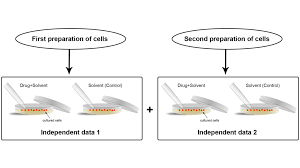
-
Best Australian Pokies Best Payout
Play Free 777 Pokies Online
What Are the Best Australian Pokies to Win Big On
What Are the Best Online Pokies with Low Minimum Deposits for Real Money in Australia
New Australian Pokies Accepting PayID
What Are the Best Strategies to Win in Online Pokies with Bonus Rounds in Australia
Tips for Winning Top Australian Pokies
What Online Casinos Offer Free Play Pokies with Welcome Bonuses in Australia
Australian Slot Games
Payout Ratio Pokies with Welcome Bonus

Make an observation in your daily life. Something like, the sky is blue.(But, be original and don’t use that one) Then, using the steps we just learned, develop a hypothesis and see what sense you can make of your observation.
Make an observation in your daily life
In a minimum of 500 words, answer the following self-reflection questions: Scientific Method
Make an observation in your daily life. Something like, the sky is blue.(But, be original and don’t use that one) Then, using the steps we just learned, develop a hypothesis and see what sense you can make of your observation.
How to Develop a Hypothesis from an Everyday Observation
Hypothesizing is a skill that can be used in everyday life to make observations more meaningful. By taking the time to develop a hypothesis, we can start to see patterns and relationships that wouldn’t have been apparent otherwise. In this blog post, we will walk through an example of how to develop a hypothesis from an everyday observation. Let’s get started!
First, make an observation in your daily life. Something like, “I always have to wait in line at the grocery store.” Then, using the steps we just learned, develop a hypothesis and see what sense you can make of your observation.
Is there a pattern to when you have to wait in line? Is it always during certain times of the day or week? Are there certain types of stores that are worse than others? By asking these questions and developing a hypothesis, you can start to understand why you’re waiting in line and how to avoid it in the future.
So don’t be afraid to use your powers of observation and hypotheses in everyday life – you may be surprised at what you discover!
Examples of Observation

Understanding Observations
In science, it is necessary to make observations in order to prove or disprove hypotheses using the scientific method, the process of hypothesizing, predicting, testing, and concluding based on one’s observations.
While observation is most definitely used by all scientists, anyone can make an observation merely by watching. To understand what observation is, check out several different examples of scientific, technical, and social observation.
Scientific Observation Examples
In science, observation is happening all the time. The scientist might be observing a cell structure under a microscope or watching genetically modified plants grow. A few other scientific observation examples include the following:
- A scientist looking at a chemical reaction in an experiment
- A doctor watching a patient after administering an injection
- An astronomer looking at the night sky and recording data regarding the movement and brightness of the objects he sees
- A zoologist watching lions in a den after prey is introduced to determine the swiftness of the animals’ response
- Air flight controllers watching their monitors for airplane movements and locations
- A meteorologist watching the Doppler radar as a storm approaches
- A botanist recording daily data on plant growth after looking and measuring each day
- A chart showing data collected over time
- A doctor watching a patient’s reaction to a medication
Technical Observation Examples
Doing your job well means that you’ll need to observe specific things to ensure the meal is turning out correctly or that your employee is performing well. View other examples of technical related observations.
- A chef watching his roast in the oven as it cooks
- A fisherman watching his line for tautness indicating a fish has bitten the bait
- A crabber watching his crab cages for activity indicating he has caught crabs
- A psychologist watching a wife’s reaction to her husband’s confession
- A daycare provider watching the children’s interaction
- A baker watching her cake in the oven to ensure it rises and is cooked appropriately
- A chef watching water come to the perfect boil before adding pasta
- A producer watching actors perform a scene
- A kennel operator watching dogs play together
- A mechanic looking under the hood while the car is running to attempt to diagnose a problem
- A teacher watching her students work during independent work time
- A boss watching construction workers build a house in order to determine their effectiveness
- A pit boss watching casino dealers and players to prevent theft or fraud
- A principal watching a teacher give a lesson to her class in order to judge her effectiveness as an educator
Social Observation Examples
Whether you are a parent watching your child or you’re watching a couple fighting at the park, social observation happens all the time. Explore different examples of social observation.
- A parent watching her children interact with other children on the playground
- A child watching a fish in a tank
- A little league coach watching children play to determine strengths and weaknesses
- An audience member watching a movie unfold on the big screen
- A person sitting at a restaurant looking at the others around and people-watching
- A parent observing her children playing together
- A babysitter watching the dog and cat play with the children
- A man watching pigeons eating birdseed at the park
- Kids watching ducks swim on a pond
Tools Used in Observation
When it comes to the science of observation, there are tools of the trade. Some examples of tools used for scientific observation are:
- barometers
- rulers
- thermometers
- scales
- cameras
- tape recorders
- video recorders
- MRI machines
- x-ray machines
- clocks
- microscopes
- telescopes
- tape measures
- binoculars
Engaging in Observation
You likely engage in observation all the time and see many examples of observation in your daily life. And now you can identify the different types of observations that occur around you all the time. Once you’ve made an observation, you may draw an inference from what you’ve seen to come to a conclusion. Test your knowledge of the topic with an observation vs. inference worksheet. Ready to master another skill? View a few classical conditioning examples in everyday life. You might just be surprised by a few of these!
Attachments
